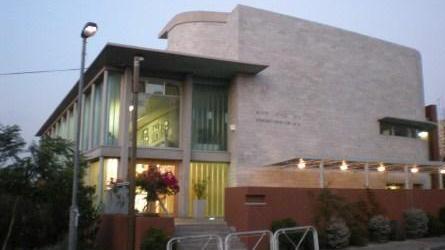

















Statement of Principles
1) "In all your ways acknowledge Him´┐Ż" (Proverbs 3:6)
Kehillat Yedidya supports the concept of full Jewish life according to the Halacha. The commandments develop relationships with God, interpersonal relationships, and responsibilities towards the surrounding society.
2) "That which is old should be renewed; that which is new should be hallowed." (Rav Kook)
A life of Torah and commandments must never become ossified. We aspire to integrate tradition and changing social reality, within the framework of Halacha. The community itself has an important role to play in questions of determining what our customs will be. The life of the community is based on praying together regularly. But the element of keva, of fixed prayer, should be infused with kavana, intention and meaning. Public prayer should become a spiritual and esthetic experience, with maximum participation. An important component of the services is the divrei Torah and shiurim, which add an intellectual dimension to the experience.
3) "Its ways are ways of pleasantness, and all its paths are peace." (Proverbs 3:17)
The Torah inculcates within us the pursuit of peace´┐Żdomestic peace, societal peace, peace among nations. The use of "ways" instead of "way" or "paths" instead of "path" teaches us that within the framework of Torah, Halacha and the community, there may be many different points of view. Even when there is controversy, there should be mutual respect.
4) "In the image of God created He him, male and female created He them." (Gen. 1:27)
All human beings were created in the image of God and are, therefore, equal. This equal involves men and women, Jews and non-Jews, people with special needs, etc. The synagogue should be open and accessible to all, although equality is not synonymous with sameness. We respect the differences among people and believe that every human being is entitled to the dignity of a creature created in the Divine Image. Kehillat Yedidya is recognized as a pioneer in the full involvement of women in community activity.
5) "Justice justice shall you pursue´┐Ż" (Deut. 16:20)
A life of Torah should be based on honesty, moral rectitude and a passion for justice, both on the personal and social levels. We are especially called upon to seek justice for those in our society who are weak and unprotected. As a community, we aspire to express these values in our lives.
6) "Do not separate yourself from the community." (Avot 2:5)
Yedidya is not only a synagogue. It is a true community, in which the members share the happy occasions of all, as well as the problems and pain. Members of Yedidya are invested in developing a strong community, characterized by a shared communal culture and mutual aid. Still, we must not forget that we are part of the neighborhood of Bak'a. At the top of our concerns should be the welfare of our neighborhood and our city. We should be involved in the social and cultural life of the neighborhood. In another sense, we are part of the wider religious Zionist community in Israel, Israeli society in general, world Jewry, and the "family" of humankind. Each of these levels brings with it differing degrees of involvement and responsibility.
7) "Hospitality is greater than receiving the Divine Presence." (Shabbat 127a)
We are commanded to offer hospitality to new members of the community, students, new immigrants, and non-Jewish guests, who are interested in experiencing a Shabbat or Chag with a Jewish community. We try to ensure that our guests will feel comfortable at the service and at the Kiddush. Since many of our members are immigrants´┐Żnew or veteran´┐Żthe community largely functions for them as a kind of "extended family." This is expressed through an extensive program of social activities, including communal meals on various occasions.
8) "Excellent is study of the Torah together with worldliness´┐Ż" (Avot 2:2)
We strive to emphasize the importance of the sciences and the arts, together with our study of Torah. In our Torah study, it is not only permitted but encouraged to integrate many and varied sources, comparative insights and commentators of disparate backgrounds. Works of art have a place of honor on the walls of the synagogue.
9) "To be a free people in our land´┐Ż" (HaTikvah)
We see in the State of Israel the expression of Jewish national sovereignty in this world, and celebrate its independence day with honor and festivity. Similarly, we pray for the welfare of the State and of its soldiers. Our lives as citizens of the State obligate us to protect its peace and security through Army or National Service, for both men and women, and to preserve its character as a Jewish and democratic state.
10) "You shall teach them diligently unto your children´┐Ż" (Deut. 6:7)
The next generation is the guarantor of continuity. The community is deeply invested in a program of varied age-appropriate activities for the children. We want the children to feel that they are part of the community. The highlight of this activity is the celebration of a Bar or Bat Mitzvah, that leads naturally into the junior congregation, and through that, we hope, to becoming an adult member of the community, or, at least, to maintaining a strong, ongoing connection with the community and its values.